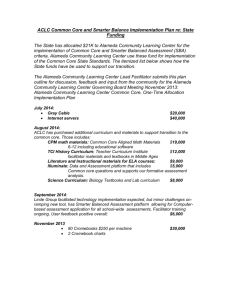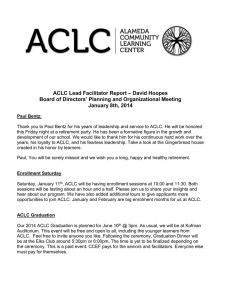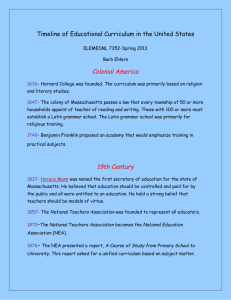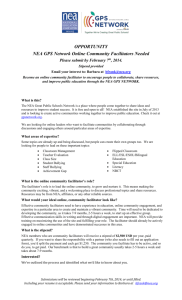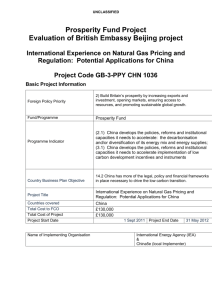CLCS Homeless Education Policy Community Learning Center
advertisement
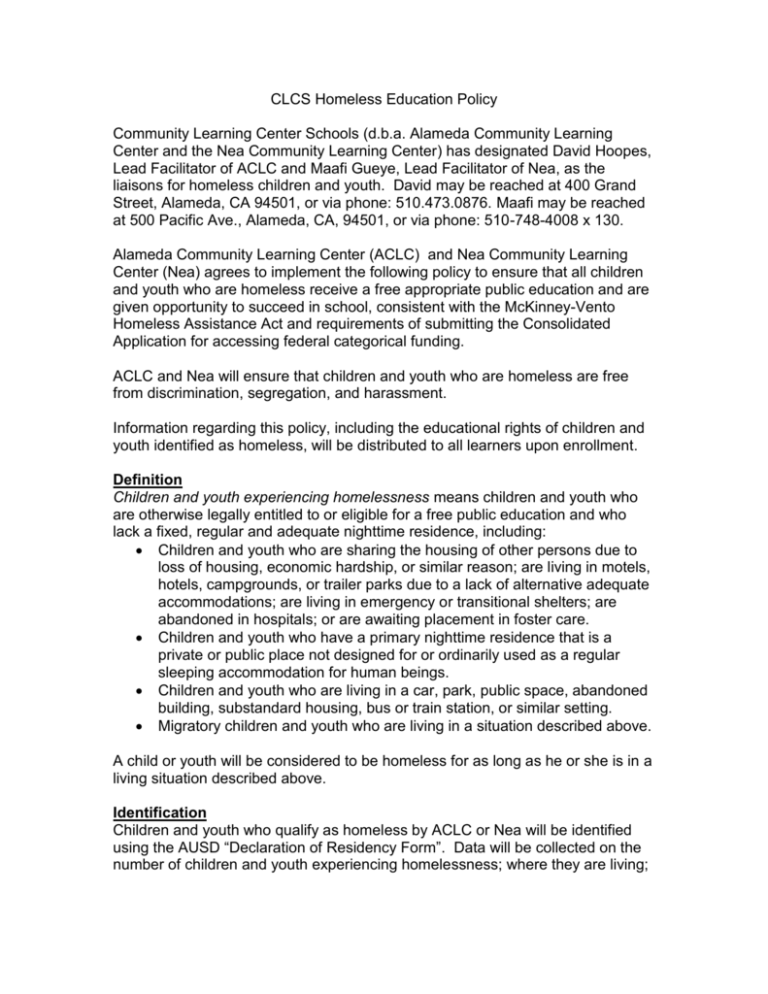
CLCS Homeless Education Policy Community Learning Center Schools (d.b.a. Alameda Community Learning Center and the Nea Community Learning Center) has designated David Hoopes, Lead Facilitator of ACLC and Maafi Gueye, Lead Facilitator of Nea, as the liaisons for homeless children and youth. David may be reached at 400 Grand Street, Alameda, CA 94501, or via phone: 510.473.0876. Maafi may be reached at 500 Pacific Ave., Alameda, CA, 94501, or via phone: 510-748-4008 x 130. Alameda Community Learning Center (ACLC) and Nea Community Learning Center (Nea) agrees to implement the following policy to ensure that all children and youth who are homeless receive a free appropriate public education and are given opportunity to succeed in school, consistent with the McKinney-Vento Homeless Assistance Act and requirements of submitting the Consolidated Application for accessing federal categorical funding. ACLC and Nea will ensure that children and youth who are homeless are free from discrimination, segregation, and harassment. Information regarding this policy, including the educational rights of children and youth identified as homeless, will be distributed to all learners upon enrollment. Definition Children and youth experiencing homelessness means children and youth who are otherwise legally entitled to or eligible for a free public education and who lack a fixed, regular and adequate nighttime residence, including: Children and youth who are sharing the housing of other persons due to loss of housing, economic hardship, or similar reason; are living in motels, hotels, campgrounds, or trailer parks due to a lack of alternative adequate accommodations; are living in emergency or transitional shelters; are abandoned in hospitals; or are awaiting placement in foster care. Children and youth who have a primary nighttime residence that is a private or public place not designed for or ordinarily used as a regular sleeping accommodation for human beings. Children and youth who are living in a car, park, public space, abandoned building, substandard housing, bus or train station, or similar setting. Migratory children and youth who are living in a situation described above. A child or youth will be considered to be homeless for as long as he or she is in a living situation described above. Identification Children and youth who qualify as homeless by ACLC or Nea will be identified using the AUSD “Declaration of Residency Form”. Data will be collected on the number of children and youth experiencing homelessness; where they are living; their academic achievement (including state and local assessments); and the reasons for any enrollment delays or interruptions in their education. Enrollment Enrollment will be granted based on the CLCS/ACLC/Nea admissions policy. Enrollment may not be denied or delayed due to the lack of any document normally required for enrollment, including: Proof of residency Transcripts/School records (ACLC and Nea must contact the learner’s previous school to obtain school records. Initial placement of learners whose records are not immediately available can be made based on the learner’s age and information gathered from the learner, parent, and previous schools or facilitators.) Immunizations or immunization/health/medical/physical records. Proof of guardianship Birth certificate Any factor related to the learner’s living situation Transportation All identified learners living in Alameda receive free bus passes, if needed, paid for by the school and at no cost to the family. Services Children and youth experiencing homelessness will be provided services comparable to services offered other students in ACLC and Nea, including: Educational services for which the learner meets eligibility criteria, including special education and related services and programs for English language learners Before- and after-school academic support All identified families are provided information on how to apply for Free or Reduced Lunch. All identified learners are provided required school supplies (e.g., planners, notebooks, writing implements, backpacks), and participate in educational field trips, fully participating in all educational activities at no cost to the family. Coordination The Lead Facilitator/liaison will provide all identified learners’ families with information regarding public and private service providers in the community, housing and placement agencies, local liaisons in neighboring districts, and other organizations and agencies.
